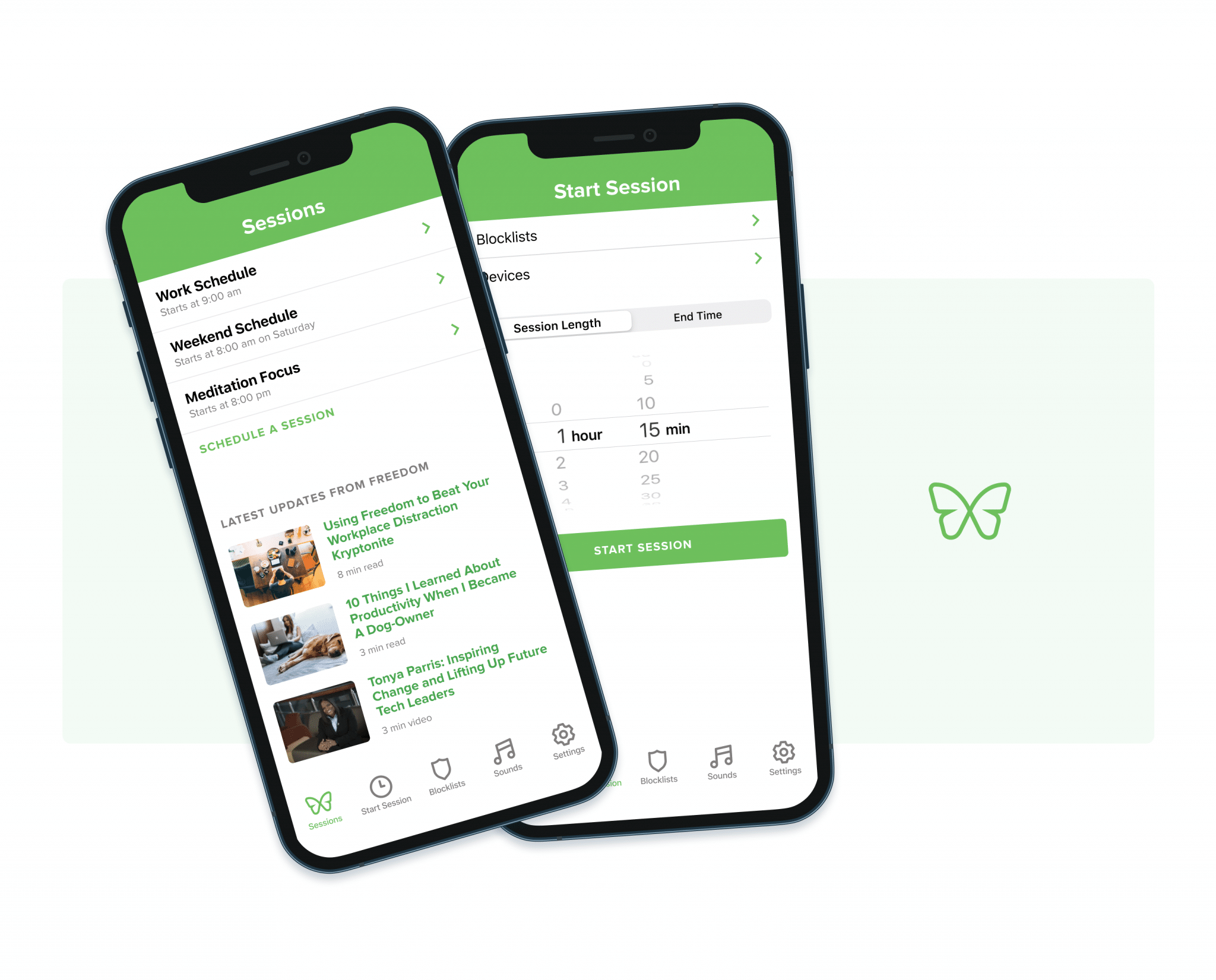Matt Sandrini: How to Set Your Daily Priorities

Every day, it’s easy to feel overwhelmed by a never-ending todo list.
Usually, we react by adding more tasks at the bottom, just in case we finish early.
As the day progresses, you then realise you have been doing a lot, but haven’t got much done. You have worked for hours, but haven’t yet had the time to touch any real work. It can feel like a constant game of catching up.
It’s no surprise that 41% of tasks set are never done.
Some people react to this overwhelming amount of work by extending their work day into the late evening, taking time away from tomorrow and tomorrow’s performance. It’s the equivalent of using a credit card for time: you’ll have to pay it off, with interests.
But what is actually holding you back from doing great work…in less time?
The forces running your day
When it comes to setting up your day for success, it’s important to identify the forces holding you back. We often ignore the impact that our own psychology and the environment surrounding us play on our day, but it’s only once you acknowledge their power that you can do something about it.
Guilt and people-pleasing
The most powerful force influencing your workday is the feeling of guilt at letting other people down. At first glance, this sounds like the perfect starting point for doing great work, but it’s not. When you aim at pleasing everyone else, you shift your focus from the mission to yourself. Instead of thinking “what would have the biggest impact?” you start from “how can I make sure everyone likes me?”.
This is the enemy of great work, as you are being reactive to other people’s constantly changing needs instead of being proactive towards achieving your greater goals.
When I die, my inbox will not be empty. And I’m ok with that.
Focusing on the goal and making other people happy aren’t incompatible, and we’ll see how to set expectations in the next section of this article. For now, the key is to differentiate between the positive impact of your work, and the lack of negative impact. The latter may sound easier, but it’s positive impact that generates progress and makes your workday meaningful (and even fun).
Small tasks are addictive
Research has shown that our brain rewards us with releasing a pinch of dopamine, a chemical compound that triggers a “feel good” effect in order to reinforce certain behaviours. Small tasks mean that you get to feel good more often: it’s intrinsically addictive to work on what doesn’t matter, what is not important.
This makes silly tasks incredibly addictive and multitasking a terrible habit: that short-term gratification is paid with a sense of guilt at the end of the day.
Short term thinking under pressure
When you feel under pressure or a bit negative, having to catch up with a mountain of tasks, your brain is more likely to narrow its focus on the present. This makes it easy to lose sight of the overall mission, and choose tasks that feel urgent over what’s important in the long run. Being under pressure because of a lack of priority makes your priorities even fuzzier, choosing the now over what really matters. It’s catch 22.
Distractions and notifications
Research shows that the average span of uninterrupted work sits at around 11 minutes for most office workers. Once interrupted, it can take up to 45 minutes to recover from a distraction and get back to work (the average being over 20 minutes).
Distractions not only lower the quality of our work, cutting down our sustained focus and stopping us from diving deep into our work: they also dictate what we should be doing. Emails, calls, colleagues walking up to your desk (to let you know they sent you an email). All these interruptions demand that you stop focusing on your important work, and instead constantly shift to the urgent.
Peer pressure and adaptation
Lastly, a strong force dictating your daily workload and schedule is…your environment. As a species, we have a strong desire to fit in. Not only we have a specific hormone that tells us to better empathise with our closest group, we constantly adapt and learn from the people around us in order to fit in. So if you hang around demotivated people that never prioritise their work, you will be the next one.
Three quick wins
Now that we’ve seen the perils you will encounter throughout your day, here are some quick wins you can start using right now to counteract them: keep a distraction list, seal vulnerabilities, and set expectations.
1- Keep a distraction list

This is a simple but very effective trick. Whenever you start working on a task, decide to dedicate the next 15-30 minutes solely on it, without interruptions. Set a timer.
You will notice that, even though your phone is on do not disturb, your mind will start to come up with distracting things to do. Text a friend. Update your groceries. Check the gym’s opening times.
Keep a small piece of paper next to your workstation, and write all these thoughts down as they pop in your head. Don’t action them, just write them down. Having a distraction list allows you to stay focused on the task: you will action each item during your next break, but in the meantime you’ve emptied your mind of nagging thoughts telling you to remember this or that.
2- Seal vulnerabilities.
When are you the most easily distracted? Is it a time of the day? Is it a place you visit regularly? Once you know your weakest points, you can prevent distractions.
I like to block emails and social media until mid-morning, so that I can concentrate on the most important task first, without getting distracted. To do this, I use Freedom to set a recurring block (just make sure you don’t need Facebook login). Then, whenever I’m working on something I want to give my complete attention to (like writing or planning my week) I manually activate the same block for an hour, and I’m good to go.
3- Set expectations.
Whenever I tell people that I haven’t had emails on my phone for the past two years (a truly life-changing decision), I get all sorts of incredulous looks. Usually followed by “I could never do that”.
Unless you work in customer service (and even then you don’t need emails on your phone), email shouldn’t be your job, it should be a tool to make your job better. But too often guilt, urgency, and dopamine come into play: I must reply now, not let the other person down, and feel good in the meantime.
This reduces emails to a string of empty back-and-forth requiring further clarification, making each recipient the victim of the other’s impatience. To reduce your interruptions, do two things: set expectations and increase the quality of your communication.
Let people know when you will be available, and when they can expect to get a reply from you, and tell them why: you are committed to serving them with great work. You can do this verbally, or in your email signature.
Then, make sure you give them more information than they asked for. Anticipate their next question, give extra context, suggest actions: eliminate the next email, and empower the other person by taking ownership of your side of the decision process. People will adapt quicker than you think.
How to identify what to work on
When you sit at your desk with no plan to tackle the day, you are letting everyone else create a plan on your behalf. But now that you know what’s stopping you from doing great work, how do you know what’s worth focusing on and what be kept waiting or…eliminate altogether?
Important vs Urgent (vs Seemingly urgent)
The first step is to differentiate between urgent and important. Tasks can be important and urgent, a mix, or none of the two, as per the famous quadrant.

Important relates to a greater, long-lasting impact, whereas urgent represents the timely nature of each task. The quadrant is extremely useful to understand what really matters: eliminate or delegate the non-important, prevent the urgent, and focus on the important.

It’s also important to distinguish between urgent and seemingly urgent. The latter comes from a feeling, or an arbitrary deadline. This doesn’t require prevention, it requires self-training to lower your sensitivity so that you can focus on what will have the greatest impact in the long run.
Steep hill or hamster wheel?
Often, we choose to work on small tasks that keep us busy, but don’t bring us anywhere. Like a hamster wheel. In the meantime, we ignore bigger tasks that will have a long-term impact and bring us forward. That’s the steep hill. Measure the impact of your tasks: is it going to stop the moment you stop working on it, or will it carry on, unlocking a positive domino effect?
How to plan your daily work
Ok. First, we looked at the psychological forces that stop us from doing great work, and three quick wins to keep them at bay. Then, we distinguished between urgent and important, and the importance to measure the impact of your work. Now, it’s time to look at how to choose and plan your daily priorities.
Start from the end
Imagine this. You want to drive from New York to San Francisco. Every day you wake up, and you guess your next destination. No need to use a map. First you go to Washington then, the next day you go to Toronto, then drive around the city, then Cleveland. Some days you get closer to your destination, some days you stay pretty much in the same spot. And other days you go backwards. Eventually (maybe) you make it to San Francisco.You can do that, or you can look at a map, spot SF, and work your way there.
We do this all the time to get closer to our destination, and yet whenever our destination is more abstract, we tend to opt for daily guesswork.When it comes to getting closer to your objectives, use the map approach: identify your destination, and work backwards from the end.
Whether you’re working out personal or business goals, here’s what you do:
- Paint a picture of where you want to be in 3-5 years
- Set up to 10 goals for the 12 months ahead that will get you closer to your 3-5 year vision. It’s ok to play this by ear, just don’t play it too safe. Make it measurable.
- Next, set a priority for your next 12 weeks, or quarter. This needs to be focused and measurable.
- Break this down into (adjustable) monthly goals weekly milestones and tasks for the whole quarter. Milestones are measurable results, tasks are actions you will take.
- Now, every day look at your weekly objective first thing and take action to get closer to it. Everything else comes second.

If it sounds like a lot of work, relax: you’ll have to do this only once, and then you’ll be set for the whole quarter and year. No need to frantically guess your priorities every day. Like looking at a map before sitting in the car, this is the easier way.
When in doubt, eliminate
One of the greatest piece of advice I ever received is to “focus on the few, not the many”. The greatest enemy of progress is an infinite to-do list that has no clear start nor end.
Here’s how to keep your daily to-dos focus and actionable.
- Limit the number of tasks you are going to work on every day to a handful. Your tasks should fit on a sticky note (no small handwriting allowed).
- Use your calendar to schedule your tasks. This way, you’ll not only have an overview of your day and week, you will also get better at estimating how much time you need. And you will understand why you should limit the number of daily tasks.
To find the tasks that matter the most, dump and eliminate: dump all your tasks on a piece of paper (or your favourite notes app), and then eliminate the ones that you can do tomorrow.
Then, look at the remaining list and select the most important and timely, the ones that will have a stronger domino effect by unlocking more progress and new actions and challenges.
Progress is no accident
Progress needs a clear direction. When your destination is clear, setting priorities becomes natural, and you can put the overall mission before small tasks, other people’s requests, and the feeling of being busy. Like using a map, doing the work upfront will save a lot more work down the line. Every day.
 Bio
Bio
Matt Sandrini is a high-performance coach and runs TimeZillionaire.com, a blog that shows you how to use time as the ultimate measure of wealth.
Matt is passionate about human behaviour and intentional performance, constantly experimenting to find better ways to make every day more meaningful, helping other people break psychological barriers and their personal potential, in order to set better goals and make better decisions.
Find his principles to become Time Rich on timezillionaire.com
Get in touch with Matt on Twitter, or read more on Time Zillionaire.



